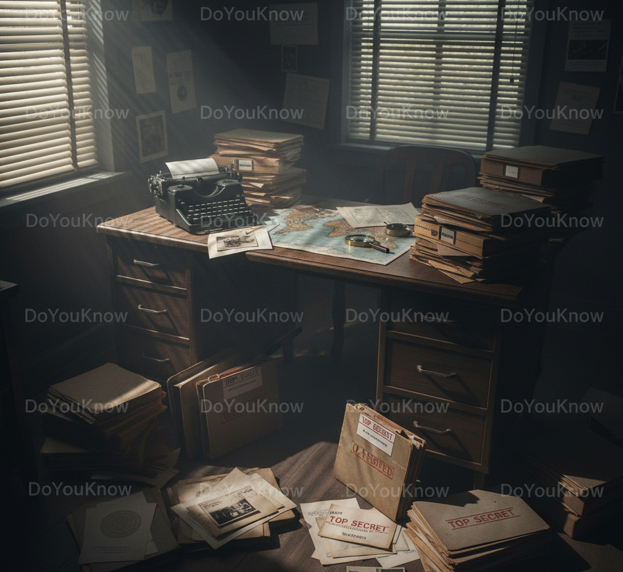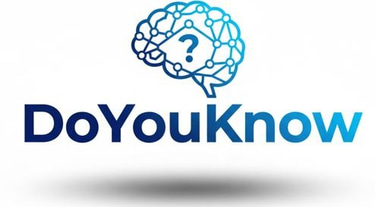Do You Know Which Historical Secrets Governments Don’t Reveal to the Public
Explore the most astonishing historical secrets that governments worldwide have concealed for decades. From covert military operations and classified experiments to suppressed political decisions, uncover untold stories, declassified documents, and hidden events that shaped history in ways most people never imagined.
KNOWLEDGE & EDUCATION
Do You Know Team
9/28/20255 min read


The history we are taught in schools, read in books, or watch in documentaries is rarely the full story. Governments throughout the world have consistently kept secrets—some to protect national security, others to maintain social stability, and many to safeguard political or economic interests. These hidden truths span centuries, continents, and disciplines, touching on military, scientific, political, and social spheres.
From the rise and fall of empires to the Cold War, secret programs have influenced the course of human events. Military operations, covert intelligence missions, clandestine political maneuvers, classified experiments, and concealed social policies are just a fraction of what remains hidden from public view. By studying these historical secrets, we can better understand the forces that shaped nations, the ethical dilemmas of concealment, and the complex interplay between power, knowledge, and public perception.
This article delves deep into the most compelling historical secrets governments have deliberately kept from the public. We explore the reasons for secrecy, the methods used to maintain it, and the eventual revelations that reshape our understanding of history.
The Purpose of Government Secrets
Governments maintain secrecy for several interrelated reasons:
National Security: Concealing information that, if revealed, could jeopardize a nation’s defense or strategic advantage.
Political Stability: Preventing public panic, dissent, or opposition that might destabilize society.
Technological Superiority: Protecting innovations, military technologies, and scientific breakthroughs from rivals.
Diplomatic Strategy: Conducting sensitive negotiations or covert interventions without revealing intentions.
Social Engineering: Controlling public perception and shaping historical narratives to maintain influence over society.
Secrecy, therefore, is not inherently negative; in some instances, it protects citizens and preserves order. However, when misused, it can lead to corruption, human rights violations, and distortion of historical understanding.
Military Secrets
Military operations are among the most heavily guarded secrets in history. Nations have undertaken covert missions, intelligence operations, and experimental warfare projects that remained hidden for decades.
Operation Northwoods (1962)
Declassified documents revealed that the U.S. Department of Defense proposed orchestrating attacks on U.S. soil to justify military intervention in Cuba. Known as Operation Northwoods, the plan included bombing U.S. cities, hijacking planes, and staging terrorist attacks. Although never implemented, its revelation highlighted the lengths governments might go to manipulate public perception for strategic purposes.
The Manhattan Project
The Manhattan Project, responsible for developing the first nuclear weapons, was one of the most secretive scientific-military undertakings in history. During World War II, over 130,000 people worked in isolated facilities, often unaware of the project’s full scope. Compartmentalization ensured that critical information was only accessible to those with a need to know. The ethical implications and destructive potential of nuclear weapons were entirely hidden from the public during the war.
Covert Operations During Conflicts
Military secrecy extends to both successes and failures:
Espionage missions during World War II and the Cold War included sabotage, intelligence gathering, and disinformation campaigns.
Failed operations, high civilian casualties, and military disasters were often hidden from public view to maintain morale and political credibility.
Operations such as the Bay of Pigs invasion, secret bombings in Laos, and covert missions in Afghanistan remained classified for decades.
Modern Military Secrets
Even today, governments continue to operate in secrecy:
Drone warfare programs, cyberwarfare operations, and intelligence missions remain largely undisclosed.
Experimental military technologies, including advanced aircraft, AI systems, and autonomous weaponry, are closely guarded.
Political Cover-Ups and Secret Treaties
Political secrecy has shaped the course of nations through concealed agreements, covert interventions, and suppressed information.
Secret Treaties and Agreements
Throughout history, nations have signed agreements hidden from the public:
The 1915 Treaty of London secretly committed Italy to the Allies during World War I, influencing the war’s trajectory.
Cold War superpowers entered clandestine agreements on nuclear weapons, intelligence sharing, and global interventions, shaping international relations unseen by the public.
Covert Political Interventions
Governments have historically manipulated political outcomes:
In the 20th century, coups, covert election interference, and destabilization campaigns occurred in nations including Iran, Chile, and Guatemala.
Assassinations, black ops, and secret negotiations were conducted to achieve political objectives without public knowledge.
Suppressed Historical Evidence
Several governments concealed atrocities, human rights violations, and controversial policies:
From forced labor camps to massacres and population displacements, the full extent of these events was hidden to maintain social order and protect national reputation.
Secret Scientific Experiments
Scientific exploration, particularly when linked to military advantage or national security, has often been conducted in secrecy.
Human Experimentation
Ethically troubling experiments include:
Project MKUltra: CIA mind-control experiments on unwitting subjects in the 1950s–60s.
Wartime chemical and biological agent testing on humans, often without consent.
Advanced Technology Research
Governments have invested heavily in secret technological programs:
Nuclear weapons development, radar and missile research, and experimental aircraft.
Early AI and computer technology projects with military applications.
UFOs and Aerospace Secrets
Research into UFOs and experimental aerospace projects has fueled speculation:
Governments have historically concealed investigations into unidentified flying objects.
Advanced aircraft, stealth technologies, and aerospace experiments remain partially classified.
Concealed Social Movements and Domestic Policies
Secrecy is not limited to military or scientific domains. Governments have often influenced society through hidden measures:
Mass Surveillance: Monitoring citizens’ communications and activities without disclosure.
Propaganda Campaigns: Shaping public perception through selective dissemination of information.
Economic Concealment: Suppressing knowledge of financial failures, economic manipulation, or secret bailouts.
Famous Declassified Documents
Several documents have revealed shocking historical secrets:
Pentagon Papers (1971): Exposed U.S. misrepresentation of the Vietnam War.
KGB and CIA Archives: Revealed Cold War espionage, intelligence tactics, and covert operations.
Nuclear Test Records: Disclosed environmental and human consequences of secret nuclear experiments.
Ongoing Government Secrets
Even today, many secrets remain classified:
Advanced defense systems, autonomous weapons, and experimental aerospace projects.
Investigations into unidentified aerial phenomena (UFOs).
Restricted access to historical files documenting human rights violations and covert operations.
Ethics and Implications of Secrecy
The concealment of historical events raises complex ethical questions:
National Security vs. Public Right to Know: Balancing protection with transparency.
Manipulation of History: Distorted narratives can shape collective memory and identity.
Accountability: Lack of transparency allows governments to evade responsibility.
Secrecy has profound societal consequences, from fueling conspiracy theories to delaying justice for historical wrongs.
Case Studies of Hidden Historical Events
Operation Gladio: NATO’s secret armies in Europe during the Cold War.
Tuskegee Syphilis Study: U.S. government withheld treatment from African-American men to study disease progression.
Iran-Contra Affair: Secret U.S. arms sales and funding to rebel groups concealed from Congress.
Japan’s Unit 731: Biological warfare experiments during World War II, concealed for decades.
Soviet Nuclear Accidents: Series of incidents at USSR nuclear facilities revealed decades later.
FAQ – Frequently Asked Questions
Q1: Why do governments hide historical information?
A1: To protect national security, maintain political stability, control narratives, and safeguard technological or strategic advantages.
Q2: Can all historical secrets eventually be revealed?
A2: Some remain classified indefinitely, but declassification programs and whistleblowers continue to uncover hidden truths.
Q3: What are some famous government secrets?
A3: Operation Northwoods, Project MKUltra, Pentagon Papers, secret treaties, espionage missions, and hidden nuclear tests.
Q4: How reliable are declassified documents?
A4: They provide valuable insights but can be incomplete or redacted; cross-referencing multiple sources ensures accuracy.
Q5: How does secrecy impact society?
A5: It can distort history, fuel speculation, delay justice, and influence collective memory.
Conclusion
Government secrecy has shaped history, society, and technology in ways the public rarely sees. Military operations, political cover-ups, secret scientific experiments, and concealed social policies have long-lasting effects on societies, nations, and global relations.
While secrecy can protect national security and prevent harm, its misuse highlights the importance of transparency, accountability, and critical examination of historical narratives. By studying revealed and declassified secrets, we gain a richer understanding of history, uncover lessons for the present, and ensure that future generations are better informed about the forces shaping their world.
Understanding hidden history is not merely an academic pursuit—it is a vital part of informed citizenship, ethical governance, and societal resilience.
#GovernmentSecrets #HiddenHistory #ClassifiedArchives #HistoricalCoverUps #SecretDocuments #UntoldHistory #TopSecretFiles #DeclassifiedDocuments #PoliticalCoverUps #DoYouKnow #HistoricalMysteries #HiddenEvents #GovernmentTransparency #MKUltra #PentagonPapers #ColdWarSecrets #Espionage #SecretTreaties #HistoricalRevelations
Knowledge
Empowering minds with reliable educational content daily.
Newsletter Signup
© 2025 DoYouKnow. All rights reserved.
Stay Ahead of the Trends – Join Our Newsletter
